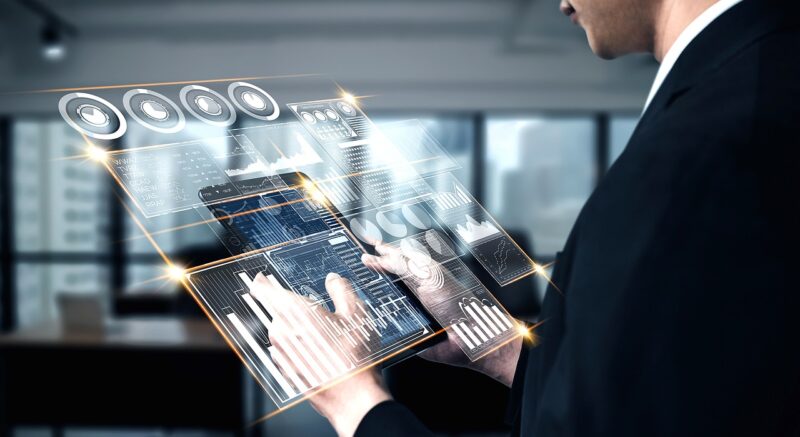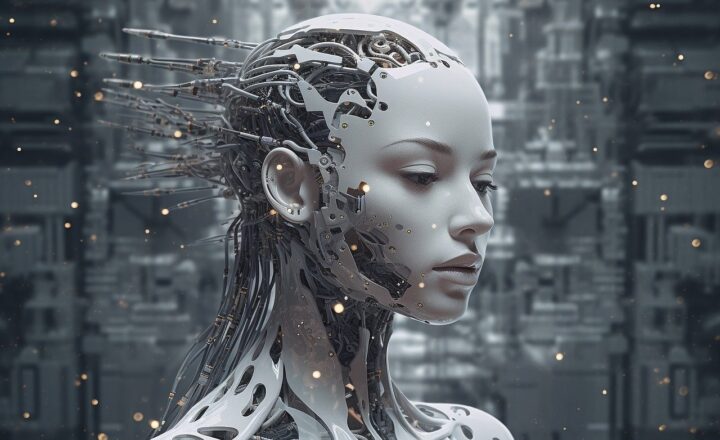The Rise of Artificial Intelligence and How It’s Reshaping Our Future
November 16, 2024

Artificial Intelligence (AI) has transcended its once niche status to become a transformative force in nearly every aspect of our lives. From the devices we use daily to the workplace environments we operate in, AI is reshaping our world in profound ways. This monumental shift not only enhances productivity and efficiency but also sparks critical discussions about ethics, future employment, and the nature of intelligence itself.
1. Understanding Artificial Intelligence
Artificial Intelligence refers to computer systems that mimic human cognitive functions, such as learning, problem-solving, and decision-making. AI can be categorized into two primary types: Narrow AI, which is designed for specific tasks (like virtual assistants), and General AI, which would possess human-like abilities across a wide range of activities. Although we are currently immersed in Narrow AI technologies, the concept of General AI fuels much speculation and concern about future capabilities.
AI is not a singular entity but a broad field encompassing various technologies, including:
- Machine Learning (ML): A subset of AI where algorithms improve through experience and data input without explicit programming. This is how AI systems learn and adapt over time.
- Natural Language Processing (NLP): This allows machines to understand, interpret, and respond to human languages, facilitating communication between computers and humans.
- Computer Vision: Giving machines the ability to interpret and understand visual information from the world, its applications include facial recognition and autonomous vehicles.
- Robotics: The intersection of AI and robotics where machines are designed to perform tasks autonomously or semi-autonomously in the physical world.
The fusion of these elements is making AI increasingly integral to various sectors, including healthcare, finance, marketing, and education.
2. The Impact of AI on Various Sectors
AI’s reach extends across numerous industries, each experiencing its unique transformation:
Healthcare:
AI is revolutionizing healthcare through predictive analytics, faster diagnostics, and personalized medicine. Machine learning algorithms can spot patterns in patient data that may help in early disease detection. AI-powered chatbots are also streamlining patient interaction, providing instant information and assistance.
Finance:
In finance, AI is employed for fraud detection, automated trading, and risk assessment. Machine learning algorithms analyze transaction data in real-time, identifying anomalies that signify fraud and protecting customer assets.
Marketing:
Marketers are leveraging AI for consumer behavior prediction and personalization. By analyzing customer data, AI can recommend products effectively, optimize ad spending, and enhance customer engagement.
Education:
AI-driven platforms are personalizing learning experiences. Adaptive learning technologies assess individual student performance and tailor educational content accordingly. AI tutors can provide additional support outside traditional classroom settings.
The implications of AI’s impact across these sectors extend beyond efficiency; they alter job roles, workplace dynamics, and even our social fabric.
3. The Impact of AI on Employment
While AI’s efficiency can lead to substantial cost savings and productivity enhancements, it also raises concerns about job displacement. As AI systems take over repetitive tasks, there is fear surrounding potential job losses in manufacturing, customer service, and even professional sectors such as law and finance.
However, it’s essential to recognize that history shows technological advancements often create new job categories while rendering some obsolete. The rise of AI challenges the workforce to adapt, acquire new skills, and evolve.
The future may see roles focused on:
- AI training and maintenance, ensuring systems function optimally.
- Human-AI collaboration, where humans work alongside AI systems, mitigating limitations of AI with human intuition and emotional intelligence.
- Ethical oversight, ensuring AI applications adhere to ethical standards and protect user privacy.
As we tread further into the era of artificial intelligence, continuous education and reskilling are paramount for workforce adaptation.
4. Ethical Considerations and Challenges
With great power comes significant responsibility. The rapid adoption of AI presents various ethical dilemmas:
Bias in AI Algorithms:
AI systems are only as good as the data they learn from. If the training data contains biases, AI can inadvertently perpetuate these prejudices across decision-making processes, impacting hiring, lending, and law enforcement.
Privacy Concerns:
The use of AI in data collection, surveillance, and personal information analysis raises serious questions about user privacy. As AI becomes capable of sifting through vast amounts of data, striking a balance between innovation and privacy rights is crucial.
Autonomous Weapons:
The growth of AI technology in the defense sector presents ethical dilemmas surrounding the potential for autonomous weapons. The risk of machines making life-and-death decisions without human intervention poses significant moral implications.
Discussions surrounding the ethical framework for AI utilization are vital. Researchers, lawmakers, and ethicists must collaborate to create standards that reflect societal values and ensure accountability in AI development.
5. The Future of Artificial Intelligence
AI’s trajectory is poised to influence our future significantly. Expectations suggest AI systems will facilitate innovations that enhance our lives:
- Enhanced Personalization: Society will likely see AI delivering more personalized experiences in areas like healthcare, entertainment, and education, adapting to individual needs and preferences.
- Smart Cities: Integration of AI with IoT will lead to the development of smart cities that optimize resources, reduce waste, and improve road safety through data analysis and effective traffic management.
- AI in Climate Action: AI technology will become crucial in addressing climate change by analyzing data related to environmental changes and predicting future patterns, valuable in making informed policy decisions.
- Collaboration with Humans: Rather than replacing humans, the future may see a synergistic relationship. AI could augment human capabilities, making tasks easier and more efficient.
Ultimately, the evolution of AI poses both challenges and opportunities. The future will heavily depend on how we as a society adapt, manage, and harness this powerful technology. That responsibility is in our hands, and creating a future that reflects ethical values and shared progress is attainable with thoughtful engagement.
Conclusion
AI is more than just a technological breakthrough; it is a reflection of human ingenuity and ambition. Its rise is reshaping not only industries but also how we perceive and interact with the world. Navigating this transformation demands a proactive approach toward education, ethical considerations, and adaptability. As we look forward, the challenge lies in maximizing the benefits of AI while safeguarding our values, privacy, and humanity’s role in this new age.
Embracing AI with a balanced perspective can lead us to a future filled with potential and innovation, ultimately enhancing the human experience.







